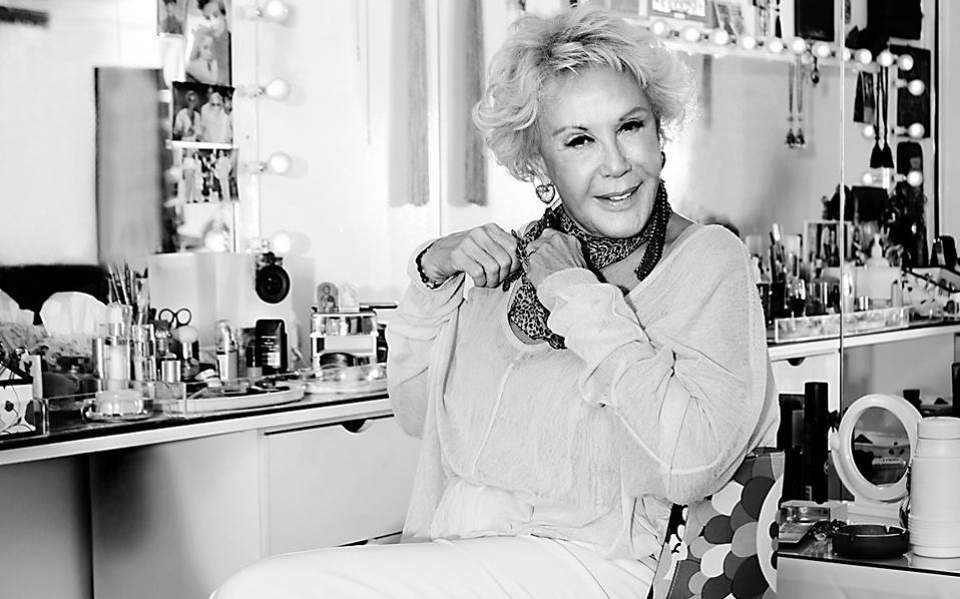Zoe Laskari, a name that still resonates with the echoes of the "golden age" of Greek cinema during the 1960s, left an indelible mark on the entertainment industry. Her magnetic presence wasn't confined to the silver screen; it also illuminated the stages of theatre, creating a legacy that continues to capture the hearts of audiences worldwide.
Born on December 12, 1942, in Thessaloniki, Zoe's early life was marked by adversity. Raised by her grandparents, her father's tragic demise at the hands of ELAS men during the occupation in 1943 and her mother's experiences during the Greek Civil War instilled a profound depth into her performances. These early struggles would later infuse her roles with an authenticity that resonated deeply with audiences.
Zoe's educational journey led her through the Valagianni Girls’ School corridors, the Kalamari Greek-French School of nuns in Thessaloniki, and the drama school of Pelos Katselis in Athens. The pivotal moment of her rise came on June 20, 1959, when she clinched the title of 'Star of Greece' in a beauty pageant. This triumph catapulted her onto the international stage, as she represented Greece in the Miss Universe contest on July 26 of the same year, held in Long Beach, USA.
The cinematic landscape was forever altered in 1961 when Philopoemen Finos cast her as the lead in the dramatic film "Kateforos," under the adept direction of Giannis Dalianidis. This film enjoyed unparalleled commercial success during the 1961-1962 season and etched Zoe's name as a leading lady, solidifying her position in the pantheon of Greek cinema's "golden age."
In the subsequent years, Zoe's collaboration with luminaries like Kostas Voutsas and Alekos Alexandrakis bore fruit in unforgettable films such as "Some Prefer It Cold" (1963), "Kissing Girls" (1965), and "The Sea of Pearls" (1967). Her performances, imbued with raw emotion and authenticity, captured the hearts of generations, making her an enduring icon.
Yet Zoe's prowess extended beyond celluloid. In 1970, she graced the Athenian theatre scene, taking centre stage in the musical "Marijuana Stop" by Giannis Dalianidis. Her virtuosity further illuminated productions like "Barefoot in the Park" by Neil Simon and "Miss Pepsi" by Pierrette Bruno.
Her audacity shone in 1985 when she became the first Greek actress to pose in a daring photoshoot for the Greek edition of Playboy magazine. This bold step signalled a changing cultural landscape and empowered others to embrace self-expression.
As the years advanced, Zoe's influence only grew. She founded her theatre stage within the ATHINAIS multipurpose hall in Athens in 2003, a testament to her enduring commitment to the arts. The Hellenic Film Academy acknowledged her exceptional contributions in 2013, a fitting tribute to her cinematic legacy.
Her final cinematic appearance in Dimitris Tzetzas' 2015 film "The Republic" and her last theatre role in Nikos Moutsinas' "Brides of Courage" in 2016 showcased her unwavering dedication to her craft.
Zoe's engagement transcended entertainment. She embraced political responsibilities, serving as a municipal councillor of Athens during Dimitris Avramopoulos' tenure. Amid her extraordinary journey, her relationship with Tolis Voskopoulos became an iconic chapter that defined an era.
On a personal note, Zoe's life was marked by two marriages. Her first, in 1967, to Petros Koutoumanos bore a daughter, Martha Koutoumanos. Her union with Alexandros Lykourezos in 1976 brought another daughter, Maria-Eleni Lykourezos, into the world.
Tragedy struck suddenly on August 18, 2017, when Zoe Laskari died at her Porto Rafti summer residence. Her legacy endures through her remarkable body of work, a testament to her artistic brilliance and ability to touch hearts.
Zoe Laskari, the luminous star of Greek cinema's "golden age," remains an enduring inspiration, a beacon of creativity, and a symbol of passion that transcends time.


